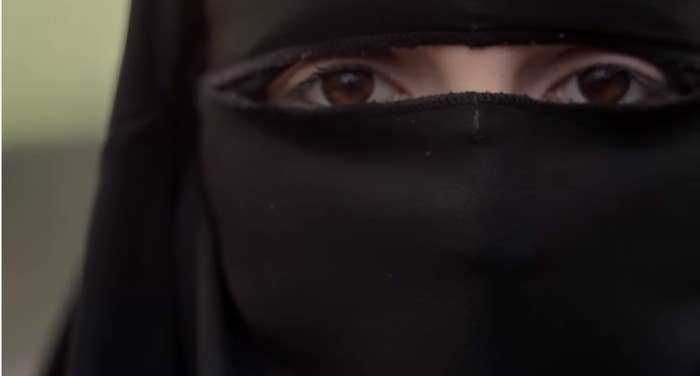This is Joni Clarke, a 22-year-old Muslim woman who lives in southeast London.

Clarke, who converted to Islam when she was 17, told BuzzFeed News on Friday that she chose to wear a niqab after studying the history of Islam.
"I was reading about the women of early Islamic communities," she said. "Many of the Sahabah [companions of the Prophet Muhammad] are revered women in Islamic history, so I tried to follow what they did, including wearing the niqab.
"Some people look up to people like Rihanna or other celebrities, but for myself, I look up to those women and chose to do things like they did."
However, since she started wearing the niqab, Clarke has been insulted, threatened, and attacked by members of the public, she said.

"When I was pregnant I got followed up the road by a bin man who shouted at me, 'Terrorist, go home!' and I've been told several times to go 'back to my country'," she said.
"I've had people flicking cigarette butts at me to try set my niqab on fire, and I've almost been run over a few times."
Although she said she "has gotten used to the abuse", there are many Muslim women who receive worse treatment because they choose to wear the veil.
Clarke decided to raise awareness of the abuse she and others face by making a short film.
View this video on YouTube
The film, My Freedom, My Right, made in partnership with the youth charity Fixers, features Clarke reciting a poem that recalls comments made to her because of her niqab.
She also included other young people from marginalised communities, such as under-represented ethnic minorities who, she said, "rarely have their struggles highlighted in the media.
"I made the video to prove a point – I wanted to highlight that people who go through struggles and discrimination every day, but are rarely talked about by the media."
She hopes the video will stop people "judging a book by its cover" and instead "treat people as individuals".

